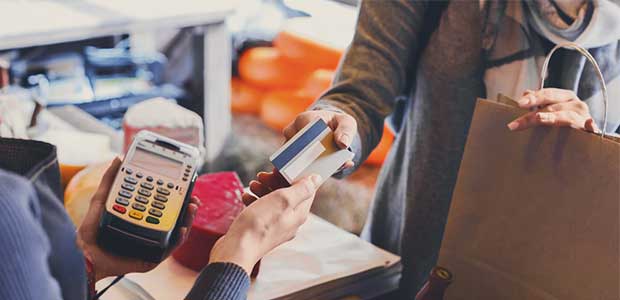
Protecting the Safety of Essential Services Workers
We stand together by standing apart.
- By Lauren Holman
- Mar 27, 2020
“We stand together by standing apart” illuminated the Paramount Theatre’s billboard in Massachusetts this week. US citizens are increasingly encouraged to practice social distancing in efforts to halt the rapid spread of COVID-19. Across the country, non-essential business are closing up shop to further promote Americans to stay at home.
Washington is the most recent state to demand the closure of nonessential businesses, following suit with Virginia, Maryland, New York, California, Pennsylvania and most other states. However, essential businesses are currently still open. Going to work in times like these presents significant health and safety risks. This article will identify those workers who are categorized as essential, as well as what your essential business can do to preserve their safety.
Who Is Considered Essential Services Workers?
Our understanding of ‘nonessential’ is simple—nonessential businesses encompass any organization that provides recreational products or services, such as coffee shops, bars, retail clothing stores, theatres, museums, sporting venues and so on. However, the accepted definition of ‘essential’ differs from state to state. The Department of Homeland Security defines an essential business as any organization that is necessary for the continuation of services that are vital for the health and safety of the public. Thus, in most states, organizations that are considered essential remain open. These include pharmacies, hospitals, grocery stores, garbage collection services, convenience stores, banks, gas stations, post offices, food processing and transportation services.
Protecting the Health and Safety of Your Essential Workers
Understandably so, companies have expressed great concern about customers and visitors exposing their employees to the virus and/or contaminating their workspace. One way to protect your staff is to implement visitor screening procedures. This is standard in health care but can (and should) be practiced in other essential organizations. Requiring visitors to check-in upon arrival and/or sign documents that confirm their health are both effective screening procedures that establish control over who enters your workplace.
Furthermore, placing a limit on the number of customers permitted in your store is a practical way of controlling customer traffic. This is particularly useful in grocery stores, where people may be passing each other closely in aisles. For organizations that are able, requiring customers to wait outside is a fail- proof way of keeping your workplace free of outside bacteria. Establishing a consumer check-in procedure where clients can only visit at allotted, pre-scheduled times throughout the day, will minimize the number of people passing through your building at the same time.
Your organization must provide staff with the necessary tools to protect themselves and disinfect their immediate environment. This includes, but is not limited to, hand sanitizer, disinfecting wipes, masks and/or rubber gloves. Essential service workers are putting their health and safety at risk each day they come to work. It is your organization’s responsibility to ensure that their health and safety is accounted for during these volatile times.
Lastly, if your company can service clients remotely, they should absolutely do so. Any instance where you can eliminate contact with the outside world should be pursued for the safety of your staff and your customers. Use video conferences and collaborative platforms wherever possible and encourage clients to only physically come in if absolutely necessary.
Working Monitoring Software
If your essential business can implement a work-from-home policy, it is important that you consider the safety of your employees—even if they are working from their home office. Constant communication is essential. Establishing a check-in procedure is an effective way of touching base with your employees throughout the day. Workers can check-in at predetermined time intervals throughout their shift to let employers know they are okay. Here are some other best practices for employees who are making the transition to working from home.
Automated worker monitoring software allows your organization to protect its people, regardless of their job or location. As environments change and work locations shift due to COVID-19, it’s important that your company stay on top of safety. In addition to check-in capabilities, here are some other benefits of implementing a worker monitoring and check in system regardless of industry.
The fact of the matter is that this is a difficult time for everyone. It’s important to shed light on those workers who cannot stay at home right now. Let’s do what we can to look out for our people who are working to support the health and safety of the public during these challenging times.